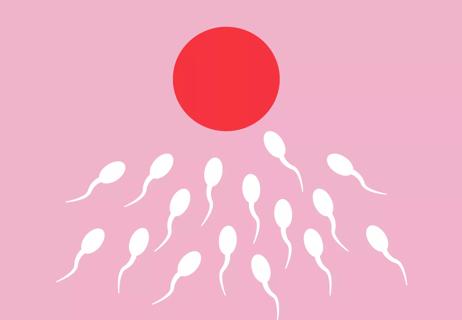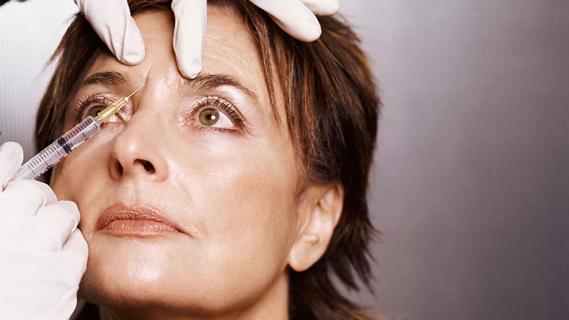What women should know about “advanced maternal age”

You’re ready to have a baby. How exciting! But you’re also well into your 30s — or beyond. How much does age really matter?
Advertisement
Cleveland Clinic is a non-profit academic medical center. Advertising on our site helps support our mission. We do not endorse non-Cleveland Clinic products or services. Policy
“While it’s true there are some risks to moms past their mid-30s, there’s no reason to panic about the number of candles on your last cake,” says Ob/Gyn Salena Zanotti, MD. “There’s nothing magical about the number 35,” Dr. Zanotti says. “Your health before and during pregnancy is more important than your age.”
Here’s what you should know about having babies on the far side of 35.
Lots of women are waiting longer to start families. The number of babies born to first-time moms 35 and older was nine times higher in 2012 than it was in the early 1970s, according to the Centers for Disease Control and Prevention (CDC).
Many of these women have to deal with terms such as “advanced maternal age” or — even worse — “geriatric pregnancy.” What those tactless terms miss is that many, many women in their late 30s and 40s have smooth pregnancies and healthy babies. And there are things you can do to boost the odds you’ll be one of them, notes Dr. Zanotti.
As women get older, the risk of certain complications can increase. That doesn’t mean every older mom-to-be will have problems. But it’s helpful to be aware of the possible risks so you can take steps to reduce them:
Talk about irony: You’ve spent all these years trying not to get pregnant. Now that you’re ready, it might be a trickier task. As women get older, their fertility decreases. It’s just not as easy to get pregnant at 40 as it is at 30. That’s something to keep in mind if you’re having the “When should we have a baby?” debate.
Advertisement
Babies of older moms are at increased risk of chromosomal problems, which can cause a variety of birth defects. The most common one is Down syndrome.
At 25, a woman’s chance of having a baby with Down syndrome is 1 in 1,250. By age 40, the risk is approximately 1 in 100 (though that’s still just a 1% chance).
Mothers over 35 can have a higher risk of problems such as:
These complications can be harmful to the mother and the baby. They can also increase the chance that a mother will need a C-section.
Moms in their late 30s or 40s are at risk of having smaller babies, which might lead to future health problems. It’s not entirely clear why that happens, but it might have to do with a deficiency of nutrients from the placenta during pregnancy, Dr. Zanotti says.
Numbers don’t tell the whole story. While older moms may have increased risks overall, age is only one factor in a healthy pregnancy. Women can take actions to boost their health and lower their risks, Dr. Zanotti says:
Smoking during pregnancy can increase the risk of:
If you’re planning to become pregnant, now’s a good time to work toward a healthy weight. During pregnancy, do your best to limit weight gain according to your doctor’s recommendations.
Nutritious, well-balanced meals are important for your health and the health of your developing baby. (That said, morning sickness is no joke. If you can only stomach crackers and toast right now, don’t beat yourself up.)
Try to get regular exercise, before and during pregnancy. Yes, your daily walks might look more like daily waddles in the third trimester, but they still count as healthy activities.
Unmanaged problems such as high blood pressure, heart disease or diabetes can cause problems for mother and baby. Work with your doctor to review current medications and supplements you’re taking and to get existing medical conditions under control — ideally, before getting pregnant.
These tests can identify birth defects and other potential problems during pregnancy. If the tests detect anything concerning, you can work with your doctor on the next steps of your care.
Before tossing your birth control, visit your doctor. Make sure any medical conditions are well managed and learn how to boost the odds of a healthy pregnancy.
Advertisement
Taking these steps can make a big difference in having a healthy pregnancy and baby. “It’s your health more than your age that determines the outcome of your pregnancy,” Dr. Zanotti says.
Advertisement
Learn more about our editorial process.
Advertisement

Home pregnancy tests can detect pregnancy just two weeks after ovulation

Bleeding is a risk and warrants taking care, but the reward of this lifesaving medication is great

Severe and debilitating headaches can affect the quality of your child’s life

With repeat injections over time, you may be able to slow the development of new wrinkles

Although it can be alarming, it’s normal to experience blood clots during menstruation

Type 2 diabetes isn’t inevitable with these dietary changes

Applying a hot or cold compress can help with pain